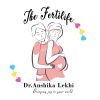Blog
- Home
- Blog

When Should You See an IVF Doctor? Early Signs & Indicators
Many couples wait too long before consulting a fertility expert, which may reduce treatment efficacy and increase cost, stress, and emotional wear. Knowing when to seek help is pivotal.
1. Time-Based Rule
If you’ve been trying to conceive naturally for 12 months (or 6 months if age is above 30), it’s time to consult a fertility specialist.
2. Irregular Cycles / Ovulation Issues
Cycles shorter than 21 days or longer than 35 days, or absence of menstruation, may indicate ovulation problems that require medical attention.
3. Known Medical Conditions
If you or your partner have PCOS, endometriosis, thyroid disease, uterine abnormalities, prior surgeries, or STDs — don’t wait. See an expert early.
4. Repeated Pregnancy Losses / Miscarriages
Two or more consecutive miscarriages should trigger evaluation for anatomical, genetic, or hormonal causes.
5. Male Factor Indicators
Low libido, previous vasectomy, testicle pain, or known varicocele history are signs men should be evaluated.
6. Failed Assisted Reproduction Attempts
If you’ve already tried IUI or IVF cycles that failed, a specialist can help identify underlying causes.
Final Word:
Seeking help early doesn’t mean giving up — it means choosing smarter, more informed steps toward your dream.
